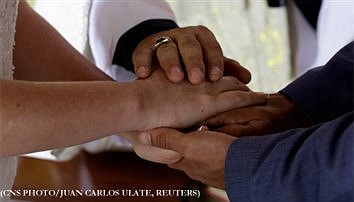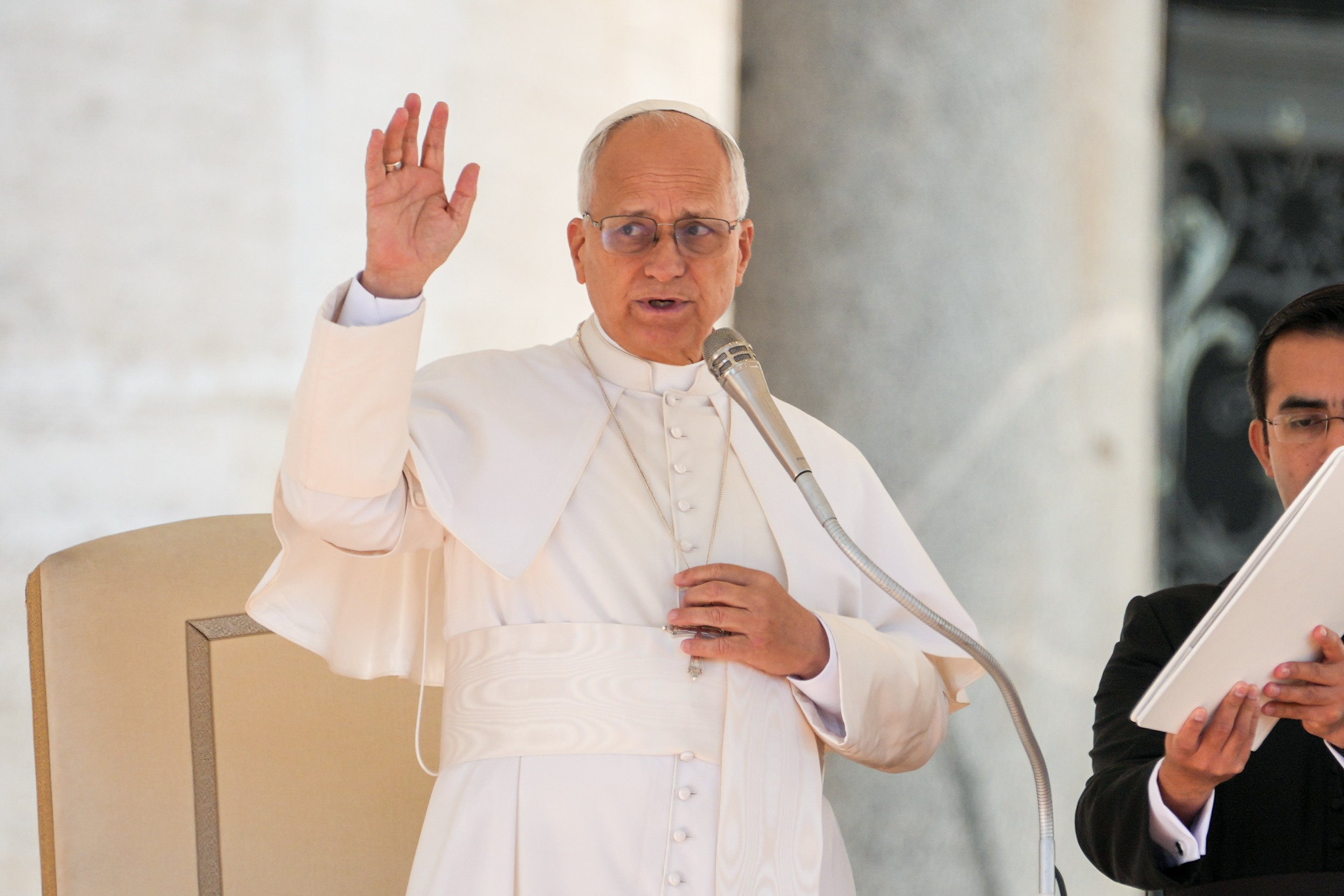July 10, 2018 at 6:50 p.m.
SACRAMENTAL MARRIAGE
Catholic weddings can be balancing act between Church guidelines, couples’ wishes
In the opening line to “Amoris Laetitia” (“The Joy of Love”), Pope Francis writes, “The joy of love experienced by families is also the joy of the Church.”
This kind of love felt between couples to be wed and the celebration of that love through holy matrimony is a joyous occasion for the whole Church — unless there are misunderstandings between a couple and their parish about what is acceptable for a Catholic wedding.
As the Albany Diocese strives to be pastoral and welcoming to couples who wish to marry in the Church, people like Mary Fay help work out what she calls “miscommunications” between couples and parishes.
Mrs. Fay is associate director for marriage and family ministries for the Diocese.
“Sometimes, we speak different languages,” she told The Evangelist. “The Church has rules because they know what they need in order to make things work, but couples don’t necessarily understand that.”
Registered parishioners?
One rule at many parishes is that couples should be registered as parishioners — usually, for at least six months prior to their wedding — if they wish to marry in the parish.
A recent article in Commonweal magazine, a Catholic journal, describes parishes struggling with the idea that couples should both adhere to Church norms and be welcomed so that they choose a sacramental marriage.
Some parishes don’t wish to marry couples who would not be committed to attending for an extended period of time. Bishop Christopher Coyne of Burlington, Vt., speaking at the Albany’s Autumn Diocesan Gathering in 2017, noted that his nephew had been turned away from marrying in a parish in his diocese because he wasn’t a parishioner.
However, in the Albany Diocese, Mrs. Fay said, it is uncommon for parishes to turn away non-parishioners hoping to schedule a wedding. She said the Diocese is “very welcoming” in trying to honor Pope Francis’ call to be more pastoral to engaged couples.
“Even if [a couple] might be the most faithful, most spiritually connected, most active couple in their parish, we still hope they’re going to grow,” she added. “Nobody comes in perfect.”
While there are diocesan guidelines, each parish is also free to have its own guidelines for weddings. Rev. John Rosson of St. Mary’s in Cooperstown, for instance, celebrates a number of “destination weddings” of couples who are not residents of the Diocese but wish to marry in historic and beautiful Otsego County.
“I have never turned someone down, but we have guidelines,” said Father Rosson. “I don’t want to give anyone a reason to feel they’re not welcome.”
Rice and doves
Father Rosson explained that couples do need to understand that the sacrament of marriage means a great deal to the Church and any given parish can’t accommodate every wish.
Many parishes, for example, prohibit the throwing of rice because it isn’t environmentally sound, or discourage placing a runner down the aisle because people could trip over it.
Father Rosson referenced one time when a groom thought it would be acceptable for his four poodles to attend the wedding ceremony. “If it’s not appropriate for the sacrament, don’t do it,” is the pastor’s answer to such inquiries.
Remembering that a Catholic wedding is a sacrament is key. Mrs. Fay noted that some couples may “want to release doves in the church or pop champagne corks [because] that’s something they may have seen on reality television, but helping them understand the sacramental reasons why they are discouraged from doing those things is important.”
Some couples have asked to perform “sand ceremonies,” a trend in which each partner pours different-colored sand together to form a unified color. Such an activity would be great for the reception, said Mrs. Fay, but to perform it during the wedding ceremony would be a distraction from the sacrament of marriage.
Be compassionate
“I’ve heard some wonderfully compassionate stories from pastors and deacons over the years who hear something that they normally wouldn’t do for a wedding, but because the couple has a very good reason, maybe to honor a family member they lost, I think they were pretty open and flexible,” she noted.
Last year, Mrs. Fay joined Rev. Anthony Barratt of the diocesan Prayer and Worship Office and Rev. James Donlon of the diocesan Tribunal in leading a workshop on the rite of matrimony. The trio discussed “best practices” for parishes in accompanying engaged couples through sacramental marriage.
Mrs. Fay hopes to hold another information session this winter.
The Diocese and its parishes, she said, need to welcome couples who want to practice their Catholic faith: “I hope that I support all the couples that call us, but I also hope I can support all the parishes and their unique situations.”
(Contact Mrs. Fay about diocesan marriage and family ministry at 518-453-6644 or [email protected].)
- US bishops overwhelmingly back ban on ‘gender interventions’ by Catholic health care
- Bishops issue pastoral message on immigration, elect USCCB secretary, approve ERDs
- House approves funding package to end government shutdown; Trump signs measure into law
- Bishop Rhoades elected USCCB secretary; 6 bishops elected to lead key posts
- Organizers highlight unique digital encounter between Pope Leo XIV and American youth
- Outgoing US bishops’ president on leadership, Eucharistic revival and the American pope
- Bishops approve new National Eucharistic Congress for summer 2029
- BREAKING: US bishops approve ‘special pastoral message’ on immigration
- USCCB has ‘balanced budget’ for now, but priorities, resources under review
- Bishops on Trump’s Religious Liberty Commission say they are working to protect all faiths








Comments:
You must login to comment.